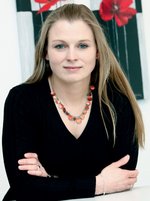
Empirical Research in Education
School-related Research in Learning and Instruction originated from a Research Unit funded by the German Research Foundation (DFG) since 2003 and a Research Training Group of the same name, Teaching and Learning of Science, which has been funded since 2004.
The Didactics of Physics, Chemistry and Biology work closely together with Instructional Psychology and Educational Research on numerous DFG projects. Many scientists from the Research Unit and the Research Training Group are also involved in further projects and research programmes which have been extended successfully within the last two years, including:
- DFG Priority Programme “Competence Models for Assessing Individual Learning Outcomes and Evaluating Educational Processes”
- Federal Ministry of Education and Research (BMBF) collaborative project “Professional knowledge in the natural sciences” (ProwiN)
- BMBF collaborative project “Paedagogical knowledge and gaining professional competencies in teacher education” (BilWiss).
Further highly regarded projects relating to education policy, such as the “Evaluation of educational standards” in the subjects of chemistry, physics and German as well as the comparative tests in German in the third and eighth grades (VERA 3 and VERA 8) of German schools, are taking place in cooperation with scientists from the UDE. The project supported by the Stiftung Mercator, “Ganz In – All-Day Schools for a Brighter Future. The New All-Day Secondary School in NRW”, is being conducted with scientists from the UDE, TU Dortmund University and Ruhr University Bochum. Successes in the Didactics of Science have also been accompanied by successful applications for third-party funding from the Didactics of Maths and Technology. Here is just a representative selection of the projects:
- BMBF project “KORA – Young Students’ Explanations of Visual Mathematical Diagrams – A Qualitative Epistemological Study of Contexts and Frameworks Supporting Visualisation Competencies”.
- DFG project “The importance of actions for the acquisition of knowledge in performing technical experiments as part of general technical education”.
The mathematics and science projects are accompanied in this field by numerous other projects from the Faculties of Humanities and Educational Sciences and the Mercator School of Management. The following projects are representative of the work of the Institute of Pedagogics and the Institute of Psychology:
- “Individualized teaching in school transitions” (funded by MERCUR)
- BMBF project: “A Multilevel Approach to Evidence- based Practise in the Educational System – Conditions, Processes and Effects” (EviS)
- BMBF project: “Development of mathematical skill acquisition and examination of influencing factors”.
One example of the work of the Institute for Sports Science and Kinesiology is its research into the exercise, games and sports on offer at all-day primary schools and their effect on what is offered by and the structure of sports clubs, coordination units and the LandesSportBund NRW in all-day schools. Another project, supported by the EU, “Healthy Children in Sound Communities” (HCSC), is working in close cooperation with family, school, sports clubs and local authorities throughout Europe on developing, testing and encouraging a healthy lifestyle (exercise, nutrition).
A range of other projects can be found in the Didactics of History, Anglophone Studies, Didactics of Religion, Business Education and Didactics, as well as at the interface between education and social research.

